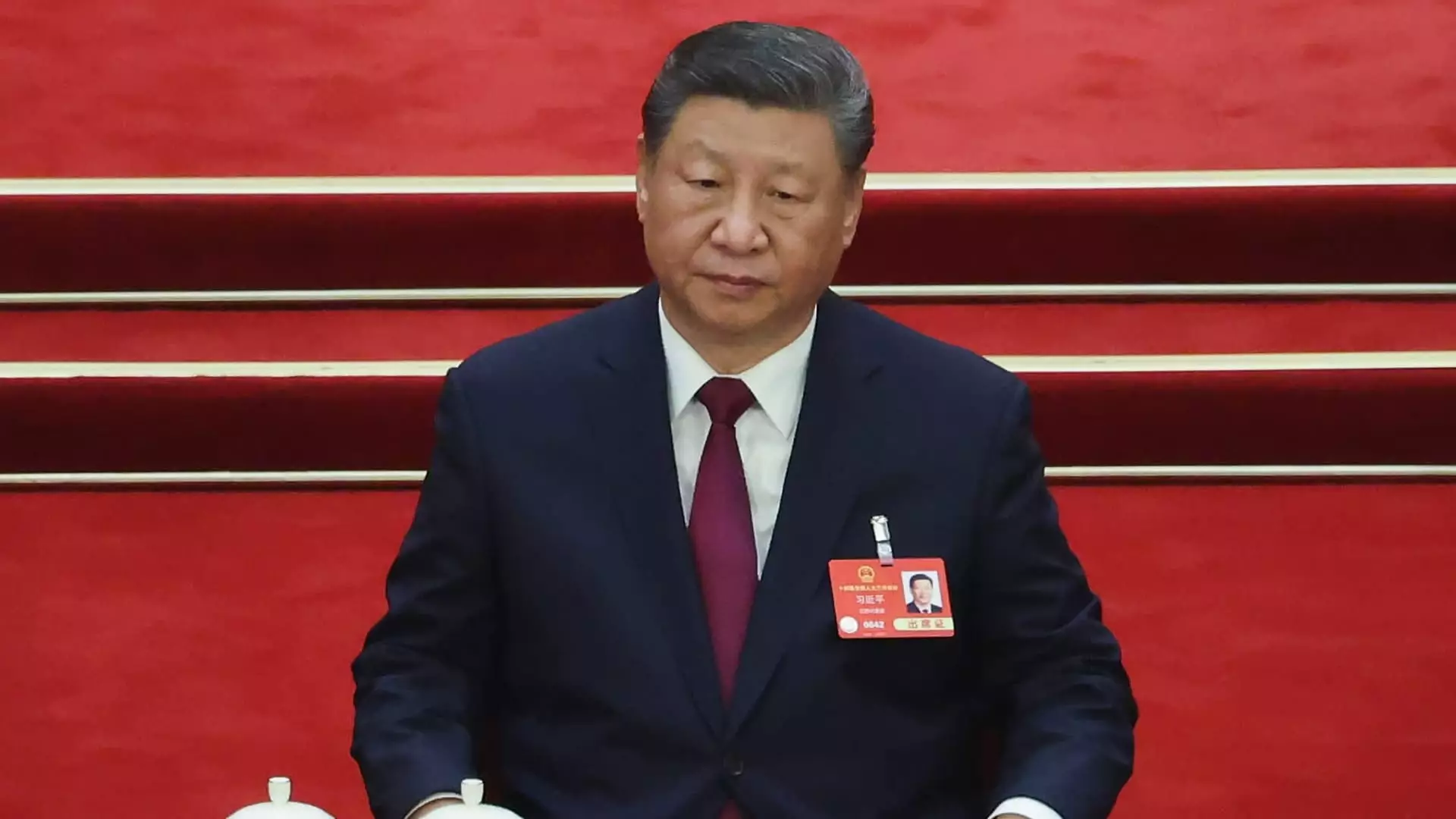The ongoing trade tensions between the United States and China have reached new heights, marked by China’s recent declaration to elevate tariffs on U.S. imports to a staggering 84%. This strategic decision, which will take effect on April 10, exemplifies a fierce countermeasure to President Trump’s aggressive tariff strategy that saw increases on Chinese goods exceed 100%. Both nations, now caught in a tit-for-tat battle, face a bleak prospect for their economic futures, with potential consequences reverberating across the global economy.
The stakes are not merely financial; they pose a fundamental threat to the principles of free trade—something the U.S. once championed. As tariffs soar, the inevitable friction in trade relationships could lead to a disastrous tightening of economic ties that benefits neither party. The painful irony here is that while both nations vie for economic dominance, they risk obliterating their own markets in the process.
A Disproportionate Economic Landscape
Recent statistics illuminate the sheer imbalance in trade between these two colossal economies. The U.S. exported $143.5 billion in goods to China while importing an overwhelming $438.9 billion in 2024. Such disparity highlights a critical flaw in U.S. strategy—aiming to force China into acknowledgment of its alleged unfair practices while neglecting the ramifications of its own economic dependencies. Treasury Secretary Scott Bessent went as far as labeling China “the worst offenders in the international trading system,” a statement that reflects a painfully myopic viewpoint about the intricate web of global commerce.
It’s easy to criticize China’s practices through the lens of a secured trade environment; however, it’s essential to grapple with the notion that glorifying “America First” without recognizing the nuances of global interdependence is inherently flawed. The essence of trade involves mutual benefit. A purely combative stance disregards the intricate interrelations between nations.
China’s Staunch Position and Global Unease
In comparison to the pliable stance of other nations like Japan, which seem willing to engage in negotiations, China is resolutely defending its territory. After the Trump administration’s latest increase, which saw tariffs reach an unprecedented 125%, China responded resolutely with counter-tariffs. This hardened attitude signals not only China’s desire to protect its interests but also illustrates a profound commitment to its national narrative—one that seeks to emerge as a dominant player on the world stage, irrespective of U.S. pressures.
The implications of such a rigid stance extend beyond the leaders and policy makers; they seep into the psyche of global investors. As fear and uncertainty loom, indicators like the S&P 500 and the Kospi Index reported significant declines, pushing markets into a bear territory. Such tangible consequences should compel a reconsideration of combative tactics, yet the current administration seems driven by a rhetoric of strength rather than acknowledging the necessity for dialogue.
The Counterproductive Nature of Tariff Escalation
While U.S. leaders vehemently argue that these tariffs are an attempt to rectify trade imbalances, the real-world effects tell a different story. By elevating tariffs to such Herculean levels, the administration may inadvertently exacerbate the very problem it seeks to resolve. As companies shy away from investing due to increased operational risks, the domestic consequences of an isolated trade war will ultimately bear down on American consumers and businesses alike.
Moreover, this approach could quite easily catalyze an economic contraction that renders both nations vulnerable. The logic that U.S. tariffs will compel a change in China’s practices might be a short-sighted strategy. It risks painting the U.S. as an aggressor rather than a leader, thereby eroding its global reputation while simultaneously empowering adversarial sentiment among its allies.
The Need for New Strategies
In light of this tumultuous atmosphere, it becomes crucial for the U.S. to pivot towards constructive engagement rather than reliance on a one-dimensional approach based on punitive measures. The power to influence global trade standards rests not just in tariffs, but in diplomacy and cooperation. Acknowledging the complexities and interconnectedness of the global economy is paramount. It’s not merely about winning a trade war but cultivating an understanding that yields long-term benefits for both sides.
As the United States and China grapple for supremacy and negotiate their place within a global marketplace, it is imperative that they recalibrate their strategies to focus on collaboration rather than conflict. The stakes are far too high for any nation to be locked in an ineffective trade battle that risks destabilizing economies on both sides of the Pacific. The path forward must be rooted in mutual understanding—with the recognition that true strength lies in partnership, not discord.



Leave a Reply